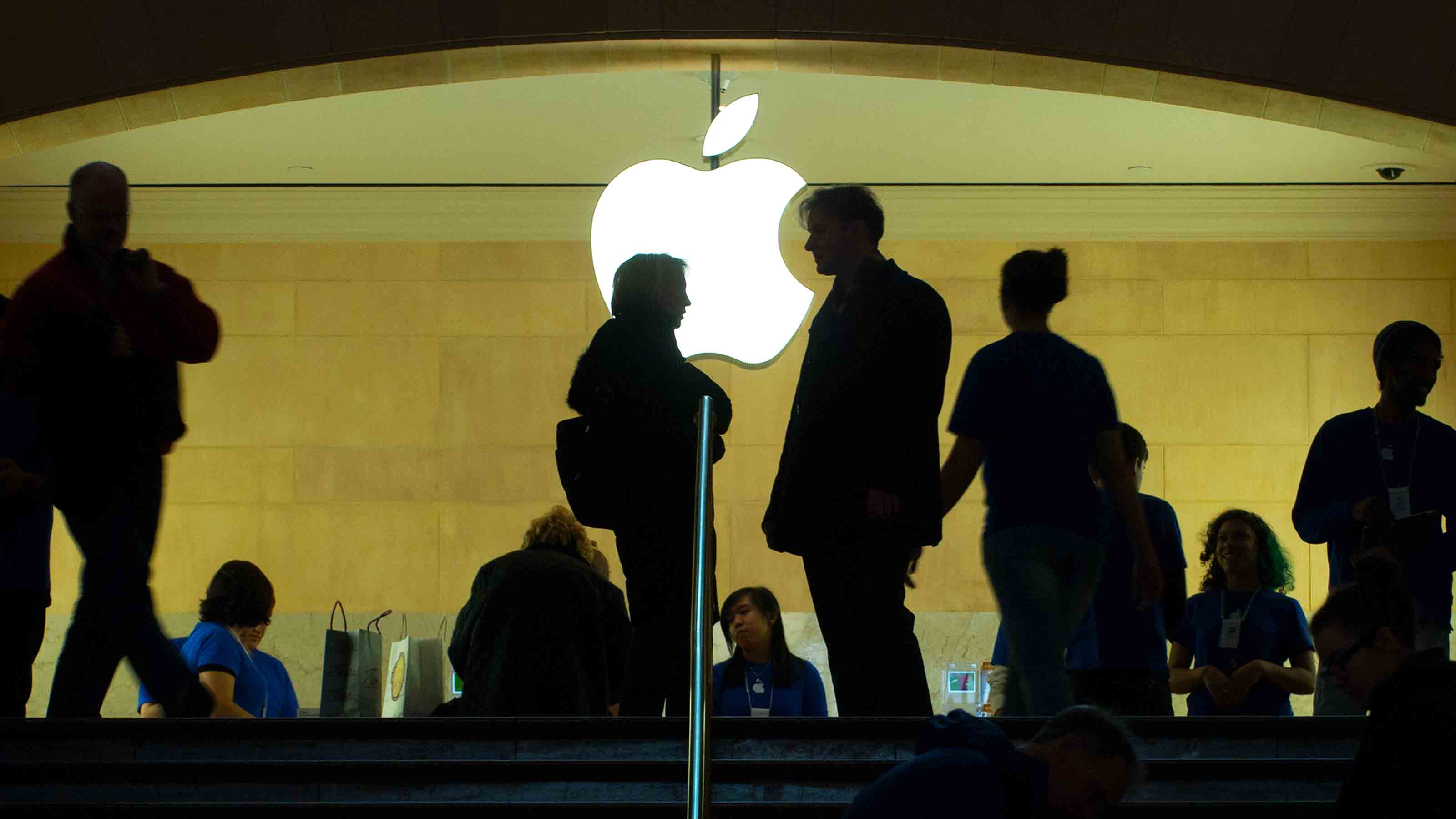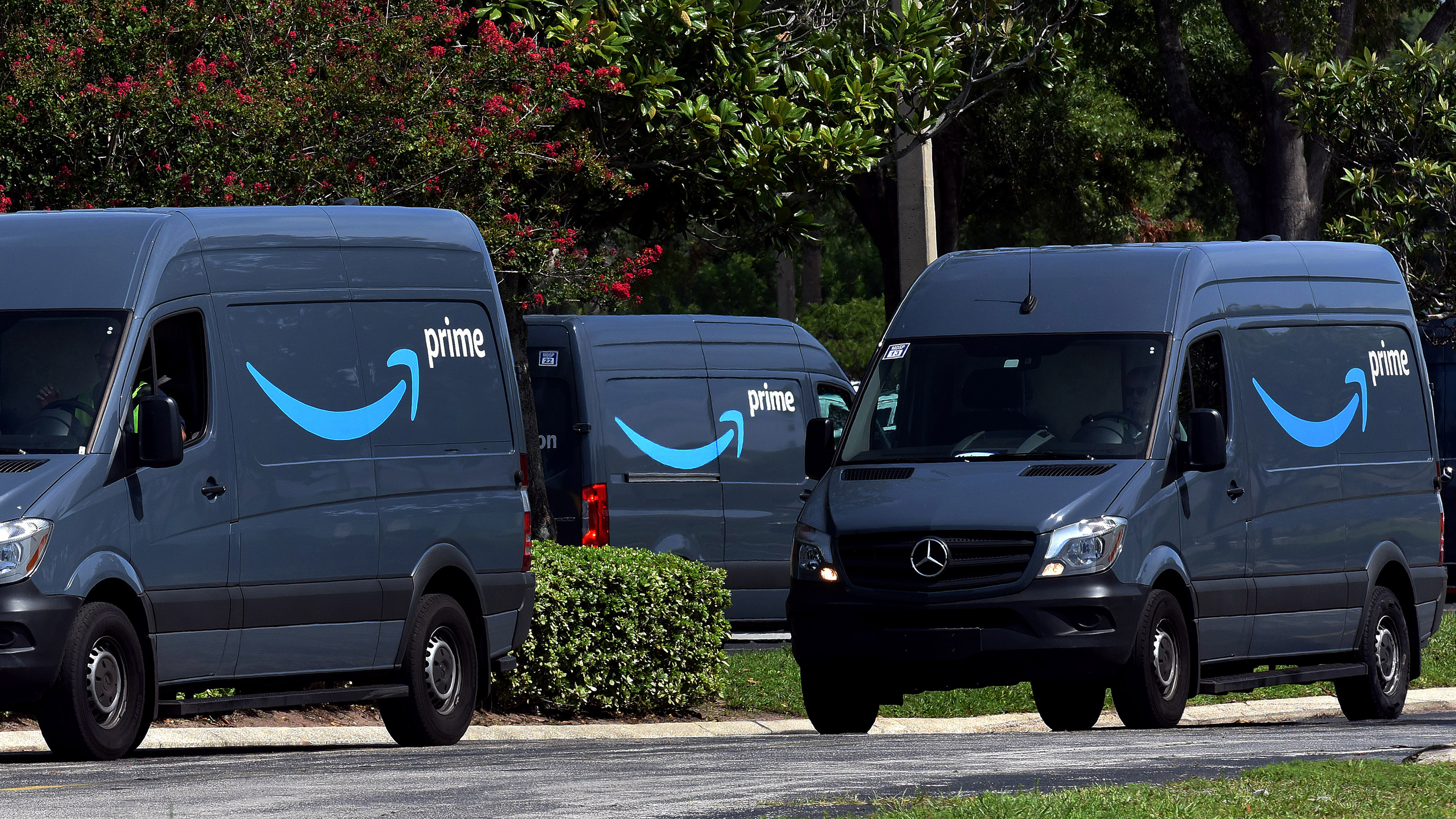Biden's Inflation Reduction Act: Investing Winners and Losers
These seven stocks could benefit the most (and least) from the Inflation Reduction Act, which has been signed into law.


Profit and prosper with the best of Kiplinger's advice on investing, taxes, retirement, personal finance and much more. Delivered daily. Enter your email in the box and click Sign Me Up.
You are now subscribed
Your newsletter sign-up was successful
Want to add more newsletters?

Delivered daily
Kiplinger Today
Profit and prosper with the best of Kiplinger's advice on investing, taxes, retirement, personal finance and much more delivered daily. Smart money moves start here.

Sent five days a week
Kiplinger A Step Ahead
Get practical help to make better financial decisions in your everyday life, from spending to savings on top deals.

Delivered daily
Kiplinger Closing Bell
Get today's biggest financial and investing headlines delivered to your inbox every day the U.S. stock market is open.

Sent twice a week
Kiplinger Adviser Intel
Financial pros across the country share best practices and fresh tactics to preserve and grow your wealth.

Delivered weekly
Kiplinger Tax Tips
Trim your federal and state tax bills with practical tax-planning and tax-cutting strategies.

Sent twice a week
Kiplinger Retirement Tips
Your twice-a-week guide to planning and enjoying a financially secure and richly rewarding retirement

Sent bimonthly.
Kiplinger Adviser Angle
Insights for advisers, wealth managers and other financial professionals.

Sent twice a week
Kiplinger Investing Weekly
Your twice-a-week roundup of promising stocks, funds, companies and industries you should consider, ones you should avoid, and why.

Sent weekly for six weeks
Kiplinger Invest for Retirement
Your step-by-step six-part series on how to invest for retirement, from devising a successful strategy to exactly which investments to choose.
The Inflation Reduction Act is now a reality. President Joe Biden signed the legislation into law on Tuesday, Aug. 16, after it was passed in both the Senate and the House of Representatives.
It remains to be seen whether the Inflation Reduction Act actually reduces inflation. It is, after all, first and foremost a spending bill, and new government spending tends to be inflationary. Ultimately, Federal Reserve policy, the untangling of the global supply chain, and increased energy production to offset the effects of Russian sanctions will have far more impact on inflation.
All the same, this is one of the most significant pieces of legislation in years, and it has major implications for American environmental policy and prescription drug prices.
We'll start with the two biggest talking points: green investment and Medicare pricing. The bill would plow $369 billion into renewable energy investment, including wind and solar projects, with a goal of reducing carbon emissions by 40% by 2030. It would also expand tax credits for electric vehicle (EV) purchases and promote U.S. energy independence.
The other big news is that Medicare would be able to negotiate drug prices for the first time, potentially lowering prescription costs for both patients and taxpayers.
Of course, nothing is free. To pay for all of this, the bill would levy a 1% tax on all corporate share buybacks and a 15% minimum corporate income tax on any company with more than $1 billion in revenues.
"We find the potential tax on share buybacks to be particularly interesting," says Sonia Joao, chief operating officer of Houston-based RIA Robertson Wealth Management. "Share buybacks have been a popular way for American companies, and particularly tech firms, to reward their shareholders. This may incentivize them to spend less on payouts and more on dividends or debt reduction. It's early, but we could see this having far-ranging implications for the U.S. market."
Stock buybacks have added trillions of dollars in buying pressure over the past decade. In fact, the companies of the S&P 500 bought back approximately $1 trillion in just the past four quarters alone, according to Yardeni Research. So, clearly, any significant change in buying patterns will potentially have an outsized impact on the market. It could mean higher dividends, but lower capital appreciation.
Today, we're going to look at some of the potential winners and losers of the Inflation Reduction Act.
Data is as of Aug. 5.

Winner: Tesla
- Industry: Auto manufacturers
- Market value: $903.0 billion
One of the most obvious winners of the Inflation Reduction Act is electric vehicle leader Tesla (TSLA, $864.51).
Tesla was an early beneficiary of federal taxpayer subsidies for EV purchases. But unfortunately, the company also became a victim of its own success. By 2018, Tesla had already sold more than 200,000 electric vehicles, which meant that they had exhausted their government allowance… and that buyers were no longer entitled to the $7,500 credit. This put Tesla at a major disadvantage to younger startups or to traditional automakers that had only recently dipped their toes into the EV market, as its products were effectively $7,500 more expensive.
The Inflation Reduction Act lifts the cap, thus making Tesla EVs eligible for the subsidy again.
Subsidies, or the lack thereof, wasn't Tesla's only issue, of course. The company faces an onslaught of new competition in both electric vehicles and in autonomous driving, two areas where Tesla had a major head start. Tesla also has both the blessing and the curse of being run by eccentric billionaire Elon Musk. Musk remains a visionary in the EV space, but his media antics – such as his attempted purchase of social media platform Twitter (TWTR) – have proven to be a distraction.
Still, the return of the subsidy is a big deal, as is the broader focus on clean, renewable energy. This may have been just the shot in the arm that Tesla's shares needed.
One caveat: The rebate only applies to cars priced under $55,000. So, Tesla might need to sell a cheaper model or a slimmed down version of its Model 3 if it is to take full advantage.

Winner: Albemarle
- Industry: Specialty chemicals
- Market value: $27.9 billion
A major investment in renewable energy and in electric vehicles can only mean one thing: a massive increase in demand for energy storage. EVs depend on large battery packs, and storage is a critical part of making solar and wind energy viable replacements for fossil fuels. After all, the sun doesn't shine at night, and the wind doesn't blow all the time.
Demand for battery storage means demand for lithium, and that's good news for major lithium producers like Albemarle (ALB, $237.99).
Founded in 1887, Albemarle is a leading global producer of lithium and bromine. Without the raw materials that ALB produces, there could be no Tesla or any other electric vehicle. But beyond that, there could be no iPhone or battery-powered laptop computer either. Virtually every wireless electronic gadget you own depends on a lithium ion battery. And those batteries depend on the mining and production of high-quality lithium.
Albemarle isn't a glitzy tech stock. It's a gritty materials stock. But it's the gritty materials stock that makes glitzy tech possible.
Demand for lithium was already strong long before the Inflation Reduction Act was dreamed up, and demand would continue to be strong even if the bill somehow died in the House of Representatives. But the potential increase in demand due to the bill's climate provisions will only turbocharge ALB even higher.

Surprising Winner: Energy Transfer
- Industry: Oil & gas midstream
- Market value: $33.4 billion
The Inflation Reduction Act is known mostly for its emphasis on renewable energy. After all, it pledged to reduce greenhouse gasses 40% by 2030. But given that West Virginia Senator Joe Manchin's vote was critical to the bill's passage – and given the importance of traditional fossil fuels to the Mountain State – there were a few sweeteners for energy and energy infrastructure companies.
At the heart of it is a revision of the permitting process for infrastructure, including pipelines, that would force the government to make a decision on whether or not to issue a permit within two years.
Major pipeline projects, including the Dakota Access and the Keystone pipelines, have been political hot potatoes over the past decade. Eliminating some of the uncertainty surrounding new projects – and forcing the government to give a straight answer in a reasonable timeline – is a major plus for pipeline operators and particularly serial growers like Energy Transfer (ET, $10.82).
ET operates over 120,000 miles of pipeline assets, and approximately 30% of all American natural gas flows through Energy Transfer assets.
Natural gas is considered a "bridge" energy source by many, or an interim step in transitioning away from dirty coal into clean renewable energy. But it's a bridge that we may be crossing for decades, and in the meantime, there is money to be made. At current prices, Energy Transfer yields over 8%.

Winner: NextEra Energy
- Industry: Utilities – regulated electric
- Market value: $172.9 billion
The stated aim of the bill, apart from lowering inflation, is to make the U.S. energy grid greener. As such, $113 billion is earmarked to encourage the building of new renewable electricity plants. That should be boon to NextEra Energy (NEE, $87.98) and other utility operators with a major presence in renewable energy. NEE has ambitious plans in place to eliminate its carbon emissions entirely. Already, the company is the world's largest producer of wind and solar energy.
But the benefits to utilities go beyond the incentives to build more capacity. If the bill is successful in advancing the transition to electric vehicles, then demand for electricity will naturally rise as drivers substitute a trip to the gas station with an overnight charge in their garage.
And the same holds true for appliances, hot water heaters and home heating systems. While we will still be using natural gas in existing construction for decades, new construction will depend far more heavily on electricity.

Loser: Apple
- Industry: Consumer electronics
- Market value: $2.66 trillion
Whether or not Apple (AAPL, $165.35) is a winner or loser here will depend on how the company reacts to the tax on stock buybacks. Apple spent over $85 billion on repurchases last year, and in the past decade, that number is close to half a trillion. And this was before the company announced a new $90 billion buyback plan back in April.
Half a trillion dollars is a lot of money, even for a company as large as Apple. And while those buybacks are testament to the company's massive success and almost unbelievable ability to generate mountains of free cash flow, let's face it: This amount of buying pressure from Apple's treasury has clearly had an impact on the share price. This isn't a testable hypothesis, and we have no way to know what AAPL's value would be today in the absence of those repurchases. But it's not a stretch to say that its share price is significantly higher today than it would have been without all of that additional buying.
So, anything that curtails buybacks going forward would be a potential risk for Apple shareholders.
Now, Apple has options here. They can choose to plow some of that buyback money into higher dividends or even into a one-time special dividend. Or, they could further strengthen their already fortress-strong balance sheet by paying down debt.
And it's entirely possible that Apple just continues with its buyback plans and considers the tax a cost of doing business. The 1% levy really isn't going to make or break the company.
So, while Apple is a potential investing loser of the Inflation Reduction Act… it's not likely to lose all that much, and neither are its fellow buy-back hoovering tech competitors, such as Meta Platforms (META) and Alphabet (GOOGL).

Loser: Johnson & Johnson
- Industry: Drug manufacturers – general
- Market value: $449.9 billion
Big Pharma will have to negotiate with Medicare going forward. And since Medicare pricing tends to drive the pricing by private insurance companies as well, the impact on drug costs should be significant. This should be a major win for patients and taxpayers alike.
That said, we have to temper expectations here. The law phases in negotiation in stages, with only 10 drugs subject to negotiation in 2026. And newer drugs would not be eligible for negotiation until at least nine years after their release.
Further complicating this is the fact that we still don't know which drugs will make the first cut.
Still, a precedent is being set. And future acts of Congress will likely accelerate what the Inflation Reduction Act has started.
None of this is particularly good for Big Pharma giants like Johnson & Johnson (JNJ, $171.11). Given the phased nature of the negotiation, there will be no immediate impact on JNJ's profitability. But it's coming, so investors should be prepared.

Loser: Amazon.com
- Industry: Internet retail
- Market value: $1.43 trillion
Amazon.com (AMZN, $140.80) is a wonder of modern capitalism. Amazon essentially created the e-commerce economy from scratch and then followed that up by creating the cloud computing economy from scratch. It's fair to say that AMZN is the most influential company of the past 30 years, and it has done more to revolutionize the way we live than any other company of our lifetimes.
AMZN also happens to be a pioneer in legal tax avoidance. Despite generating $35.1 billion in U.S. profits in 2021, the company enjoyed a federal income tax rate of just 6.1%, according to the Institute on Taxation and Economic Policy.
Now, to be clear, Amazon did nothing "wrong" by avoiding taxes. We all do everything in our power to lower our tax bills, and AMZN simply took advantage of the opportunities presented. It would be doing a disservice to its investors to not take advantage.
Well, that landscape is now changing. Under the Inflation Reduction Act, companies with at least $1 billion in profits would be required to pay a minimum tax rate of 15% on their reported profits.
Amazon will continue to mint money. But going forward, it's going to have to share a bigger chunk of it with Uncle Sam, which means less for those invested in AMZN stock.
Profit and prosper with the best of Kiplinger's advice on investing, taxes, retirement, personal finance and much more. Delivered daily. Enter your email in the box and click Sign Me Up.

Charles Lewis Sizemore, CFA is the Chief Investment Officer of Sizemore Capital Management LLC, a registered investment advisor based in Dallas, Texas, where he specializes in dividend-focused portfolios and in building alternative allocations with minimal correlation to the stock market.
-
 The New Reality for Entertainment
The New Reality for EntertainmentThe Kiplinger Letter The entertainment industry is shifting as movie and TV companies face fierce competition, fight for attention and cope with artificial intelligence.
-
 Stocks Sink With Alphabet, Bitcoin: Stock Market Today
Stocks Sink With Alphabet, Bitcoin: Stock Market TodayA dismal round of jobs data did little to lift sentiment on Thursday.
-
 Betting on Super Bowl 2026? New IRS Tax Changes Could Cost You
Betting on Super Bowl 2026? New IRS Tax Changes Could Cost YouTaxable Income When Super Bowl LX hype fades, some fans may be surprised to learn that sports betting tax rules have shifted.
-
 Nasdaq Slides 1.4% on Big Tech Questions: Stock Market Today
Nasdaq Slides 1.4% on Big Tech Questions: Stock Market TodayPalantir Technologies proves at least one publicly traded company can spend a lot of money on AI and make a lot of money on AI.
-
 Stocks Close Down as Gold, Silver Spiral: Stock Market Today
Stocks Close Down as Gold, Silver Spiral: Stock Market TodayA "long-overdue correction" temporarily halted a massive rally in gold and silver, while the Dow took a hit from negative reactions to blue-chip earnings.
-
 The New Fed Chair Was Announced: What You Need to Know
The New Fed Chair Was Announced: What You Need to KnowPresident Donald Trump announced Kevin Warsh as his selection for the next chair of the Federal Reserve, who will replace Jerome Powell.
-
 If You'd Put $1,000 Into AMD Stock 20 Years Ago, Here's What You'd Have Today
If You'd Put $1,000 Into AMD Stock 20 Years Ago, Here's What You'd Have TodayAdvanced Micro Devices stock is soaring thanks to AI, but as a buy-and-hold bet, it's been a market laggard.
-
 S&P 500 Hits New High Before Big Tech Earnings, Fed: Stock Market Today
S&P 500 Hits New High Before Big Tech Earnings, Fed: Stock Market TodayThe tech-heavy Nasdaq also shone in Tuesday's session, while UnitedHealth dragged on the blue-chip Dow Jones Industrial Average.
-
 Dow Rises 313 Points to Begin a Big Week: Stock Market Today
Dow Rises 313 Points to Begin a Big Week: Stock Market TodayThe S&P 500 is within 50 points of crossing 7,000 for the first time, and Papa Dow is lurking just below its own new all-time high.
-
 January Fed Meeting: Updates and Commentary
January Fed Meeting: Updates and CommentaryThe January Fed meeting marked the first central bank gathering of 2026, with Fed Chair Powell & Co. voting to keep interest rates unchanged.
-
 Nasdaq Leads Ahead of Big Tech Earnings: Stock Market Today
Nasdaq Leads Ahead of Big Tech Earnings: Stock Market TodayPresident Donald Trump is making markets move based on personal and political as well as financial and economic priorities.
